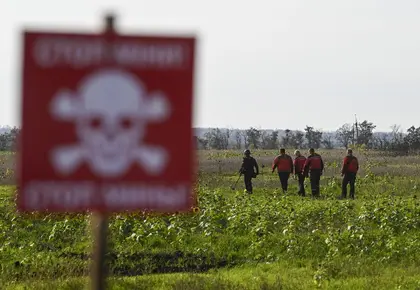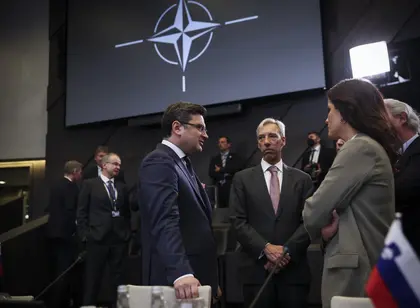Russian aggression against Ukraine destroys everything in its path. Hundreds of thousands of Ukrainian lives, millions of families, bombed-out cities and villages, and with them the cozy homes that people have created over the years. Everything acquired and built during life has been destroyed in an instant. And the destruction continues.
Along with the merciless genocide of the Ukrainian people, the Russian army is also destroying the flora and fauna on the territory of Ukraine. All this has a chain reaction with long-term consequences for the environment – not only for Ukrainian territories, but also for the European ecosystem.
JOIN US ON TELEGRAM
Follow our coverage of the war on the @Kyivpost_official.
But the Russian authorities did not worry in 2019 when massive fires broke out in Siberia’s forests – in Krasnoyarsk, Irkutsk, Buryatia, Transbaikalia and Yakutia. More than three million hectares of forest burned there, equal to the area of Belgium. There were no attempts by the Russian authorities to put out the fires. They merely introduced a state of emergency in the region.
“Over the years, society as a whole has more and more problems with the loss of biodiversity, environmental pollution and, accordingly, intensifying climate crisis,” Virginijus Sinkevičius, European Commissioner for Environment, Oceans and Fisheries, told Kyiv Post.
“And these problems were significantly intensified when Russia launched a full-scale invasion of Ukraine. Due to the Russian military actions, biodiversity has been significantly lost. After all, a huge number of grasslands, forests and peatlands are being burned. The area is mined, and mine clearance will take a very long time. In addition, there is a huge problem of pollution – chemicals and water treatment plants that are being bombed.”

Ukraine Spent Nearly $2.5 Billion for ‘eRecovery’ Program, But It’s Not Yet Enough
Russian attacks on industry – such as energy facilities, storage for oil and petroleum products – also contribute to the release of toxic substances into the air. Polluting the environment and affecting the population around it. These toxic particles then settle, remain on the surface of the soil, and enter the water.
Due to the active fighting, many coal mines in eastern Ukraine have no access or electricity. So water is not pumped out and the mines become flooded. Where very toxic mine water accumulates, it pollutes other waters, including wells, making them unusable. In other words, a potentially large number of people will be left without access to drinking water.
But environmental problems concern not only Ukraine. After all, pollution does not recognize borders, nor does biodiversity. The damage to Ukraine’s ecology will also be felt in Europe, especially in neighboring countries.
For example, when chemical facilities are bombed, the poison enters water channels that travel a long way and mix with other water sources. The poison spreads to the territory of other countries and affects the environment there. The aquatic fauna, in particular, suffers.
Marine ecology is impacted by shells in the water and the use of military equipment, such as sonars. Dolphins and cetaceans are already washing ashore with signs of disorientation.
Since everything in the environment is connected, any single problem will have ramifications. The war can lead to a change in climate conditions, at least in Europe.
But at this stage, with the war ongoing, taking action to restore the environment is difficult. Moreover, the full restoration of various ecosystems, such as aquatic environments, forests, meadows, pastures, etc., requires a variety of time frames.
“But now the most important thing is to ensure the victory of Ukraine and the establishment of peace,” Sinkevičius said. “Even then, we will be able to focus on efforts to restore the environment. But we are trying to make our contribution right now with the help of the Phoenix project. We are working with the Ministry of Environmental Protection and Natural Resources of Ukraine to get guarantees that we will be able to restore the forest and plan further restoration in the de-occupied regions right now.”
In order to speed up Ukraine’s accession to the EU, the Ministry of Environmental Protection and Natural Resources of Ukraine cooperates with the European Commission to harmonize all EU and Ukrainian rules, legislation and the rule of law. In order to ensure that all requirements are accepted and met without hindrance in the future.
You can also highlight the text and press Ctrl + Enter










